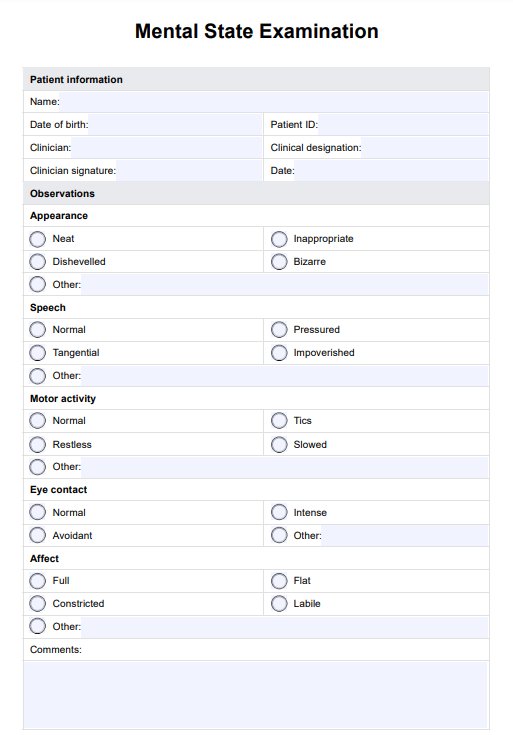A mental status examination (MSE) is a structured assessment used by healthcare professionals to evaluate a patient's mental state, including cognition, mood, thought process, and perceptions. It provides critical insights into psychiatric conditions and neurological disorders.

MSE
Thoroughly assess your patient’s mental status with the help of an MSE template. Click here for more information and a free template copy!
MSE Template
Commonly asked questions
A mental status examination (MSE) is typically performed during an initial psychiatric assessment, follow-up appointments, or when changes in a patient’s mental status are observed. It is also useful for tracking treatment progress.
Mental status examinations (MSE) are critical components of a psychiatric evaluation, designed to identify key indicators of conditions such as schizophrenia, anxiety disorders, and dementia. By assessing factors like orientation awareness, mood, affect, thought processes, and perceptual disturbances, the MSE contributes to accurate diagnosis and treatment planning. However, as a subjective assessment, it is most effective when used in conjunction with other clinical methods for assessment.
EHR and practice management software
Get started for free
*No credit card required
Free
$0/usd
Unlimited clients
Telehealth
1GB of storage
Client portal text
Automated billing and online payments











